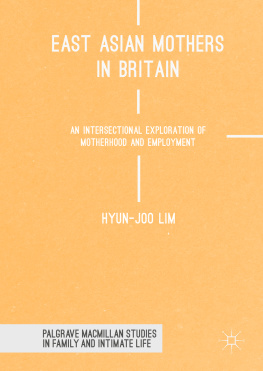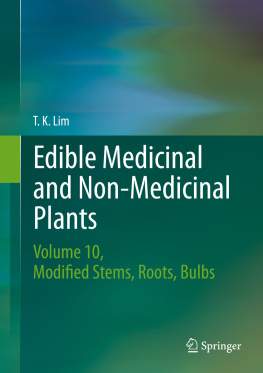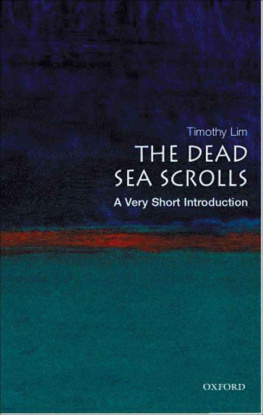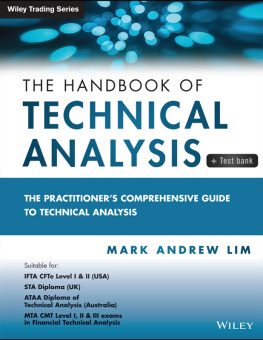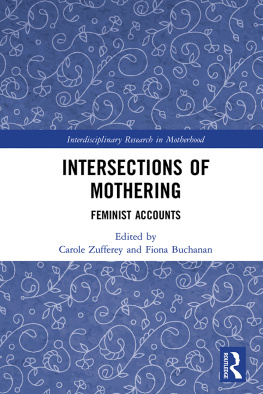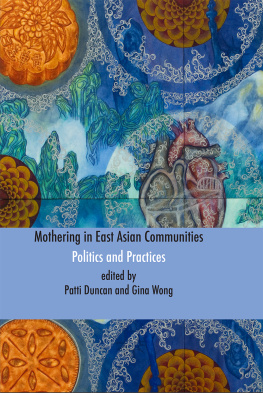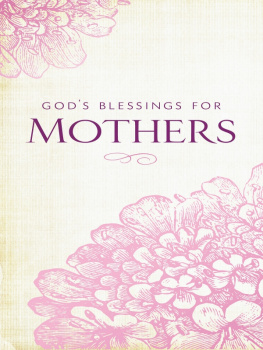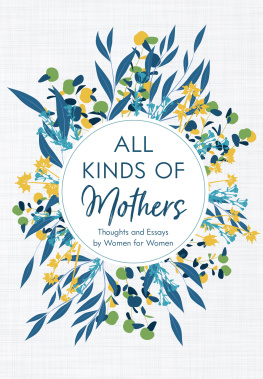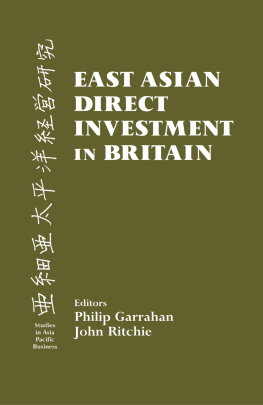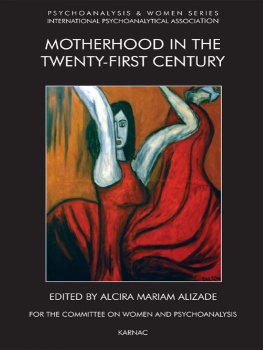1. Introduction
Over decades, we have witnessed rising educational levels and the growing economic as well as political participation rates of females in many countries. However, gender remains a central marker of social division, and womens lives in both West and East continue to be moulded by their gender status, in intersection with their race/ ethnicity and class . This is also resonated in recent works on transmigration females, with the interrelations of their gendered, racialised/ethnicised and classed positions affecting their migration patterns and lived experiences in the receiving country (e.g. Hondagneu-Sotelo and Avila ), feminist scholars have questioned profound changes in intimate relationships, such as family, and the enduring impact of structural factors and social divisions, such as gender . My work is an attempt to further this field of study, joining these feminist critiques, drawing specifically from East Asian womens narratives . This book also seeks to help us improve our understanding of identity , especially that of transnational migrants, and how migrant women challenge and reinforce gendered meanings and identity . Moreover, by examining the historical development of gender issues in different national/ethnic contexts, the book aims to hone our knowledge of the similarities and differences between East Asian countries, how they intersect with other factors and what would be the implications of these intersections in their identity construction in Britain. Furthermore, the inclusion of Korean and Japanese women will be a valuable addition to feminist scholarship in broadening our knowledge of these less-studied groups in Britain.
By using an intersectional approach, this book intends to unpack first-generation East Asian mothers narratives with specific focus on the outcomes of their motherhood and employment identity re(construction), as well as gender dynamics at home in Britain. Here, their status as migrant women in a diasporic context is vital in unravelling their multifaceted identity formation. Drawing on this intersectional analysis, the book highlights the persistent influence of their gendered beliefs, mostly rooted in their cultural/national heritage, simultaneously intersected by other factors, such as the location of settlement and their husbands gender beliefs linked to their national/ethnic backgrounds. Such intersections create different outcomes for identity (re)configurations between Chinese, Korean and Japanese women. Raised in the era of post-Mao gender equality, which encouraged womens involvement in the labour market, Chinese women tended to show strong worker identity , espousing positive impacts of their employment on themselves and their children in Britain. As a consequence, the majority of Chinese migrant women worked or sought to work. By contrast, Korean and Japanese women, especially the former, revealed a strong tendency towards an intensive motherhood identity , founded on the belief that the mothers presence and availability are essential for the emotional well-being of children. Therefore, the majority of Korean and Japanese mothers chose to stay at home. Yet, despite this apparent contrast between these mothers divided by their national/ethnic heritages, womens gendered beliefs and practices continued to affect their lives in Britain. This also applies to their gendered division of household labour . While a minority of the Japanese women who married British men claimed to have a gender egalitarian division at home, the majority of women bore the brunt of domestic chores and childcare, regardless of their employment status, national/ethnic origins and financial status. Further analysis also illuminates that even the above minority group was not free from the discourse of good motherhood and dominant gender norms.
The following section begins with setting out the importance of the study. This will be followed by positioning the current study within contemporary debates over motherhood and gender . Next, it discusses Confucianism and its influence in East Asian women by examining existing scholarly works in China, Hong Kong, Korea and Japan. In the ensuing section, it explores methodological questions in studying East Asian migrant women in Britain, which includes my positionality and its potential impact on the interaction with my participants and the interpretation of the findings. The final part of this chapter provides a brief outline of each chapter.
Why Study East Asian Mothers in Britain?
East Asian women in Britain, especially those who are Japanese and South Korean, are substantially under researched. In British public discourse, East Asians are largely invisible, with the term Asians often being referred to South Asians, such as Indian and Pakistani, who form the biggest proportion of ethnic minorities in Britain. Although the overall ratio of East Asians living in Britain is relatively small, there has been a notable increase in the number of East Asian migrants from China and South Korea in recent decades (The South Korean Ministry of Foreign Affairs and Trade ), Korean born residents in the UK increased from 12,310 in 2001 to 46,829 in 2011. However, despite this increasing presence, there is a continuing gap in the literature investigating the lived experiences of British-settled East Asian women.
While a few valuable studies of Chinese, Japanese and Korean women exist (Lee et al. ) tend to focus on gendered structures while paying scant attention to the importance of individual agency in the identity formation of Chinese women in Britain. Alongside these, no studies to date have considered the influence of the ethnicity of their husbands on gender relations at home. As a consequence, we know little about how first-generation Chinese, Japanese and Korean mothers construct meanings about their motherhood , employment and gender within a diasporic setting, in which multiple axes intersect. This book is an attempt to address these lacunae by considering the following questions: how has the national and/or ethnic cultural heritage of first-generation East Asian mothers been translated into life in Britain and how has such a translation impacted on their experiences and identity construction; how have gender relations within families been reformulated in diasporic space; what similarities and differences are there between Chinese, Japanese and Korean mothers in Britain; and what are the most important intersecting factors affecting East Asian migrant womens experiences of motherhood , employment and gender . In addressing these questions, it is vital to situate East Asian womens stories within the contemporary debates around changes in families and relationships, which I present in the following section.
Locating East Asian Motherhood and Gender Within the Contemporary Debates
Alongside the problems set out above, existing literature examining families and relationships in developed Western societies is limited in adequately addressing the experiences of ethnic minority women. A number of studies carried out in Britain (e.g. Vincent and Ball , p. 6).
It is undeniable that the above claims offer some insightful views on changes occurring in the realm of intimacy and family relationships in developed Western societies. However, they have been criticised for their overemphasis on individual freedom and an erosion of social constraints in shaping the lives of people while also ignoring alternative cultural forms and practices (Jamieson ) argue that the individualisation thesis makes rather sweeping generalisations that discount the experiences of different ethnic groups living in Western contexts. They claim that the monochrome representation of the family and individual life proposed by Giddens and Beck and Beck-Gernsheim is too simplistic, overlooking the multi-ethnic characteristics of contemporary Western societies, such as Britain, where heterogeneous ethnic cultural beliefs and practices coexist. They also question the concept of choice, pointing out that the emphasis on individual choice borders on the danger of removing individuals lives from social contexts into which their biographies are intimately woven. Additionally, Smart and Shipman (ibid.) maintain that the individualisation thesis disregards the highly gendered development of individual subjectivities under the condition of postmodernity by portraying individuals, regardless of gender , as autonomous.

